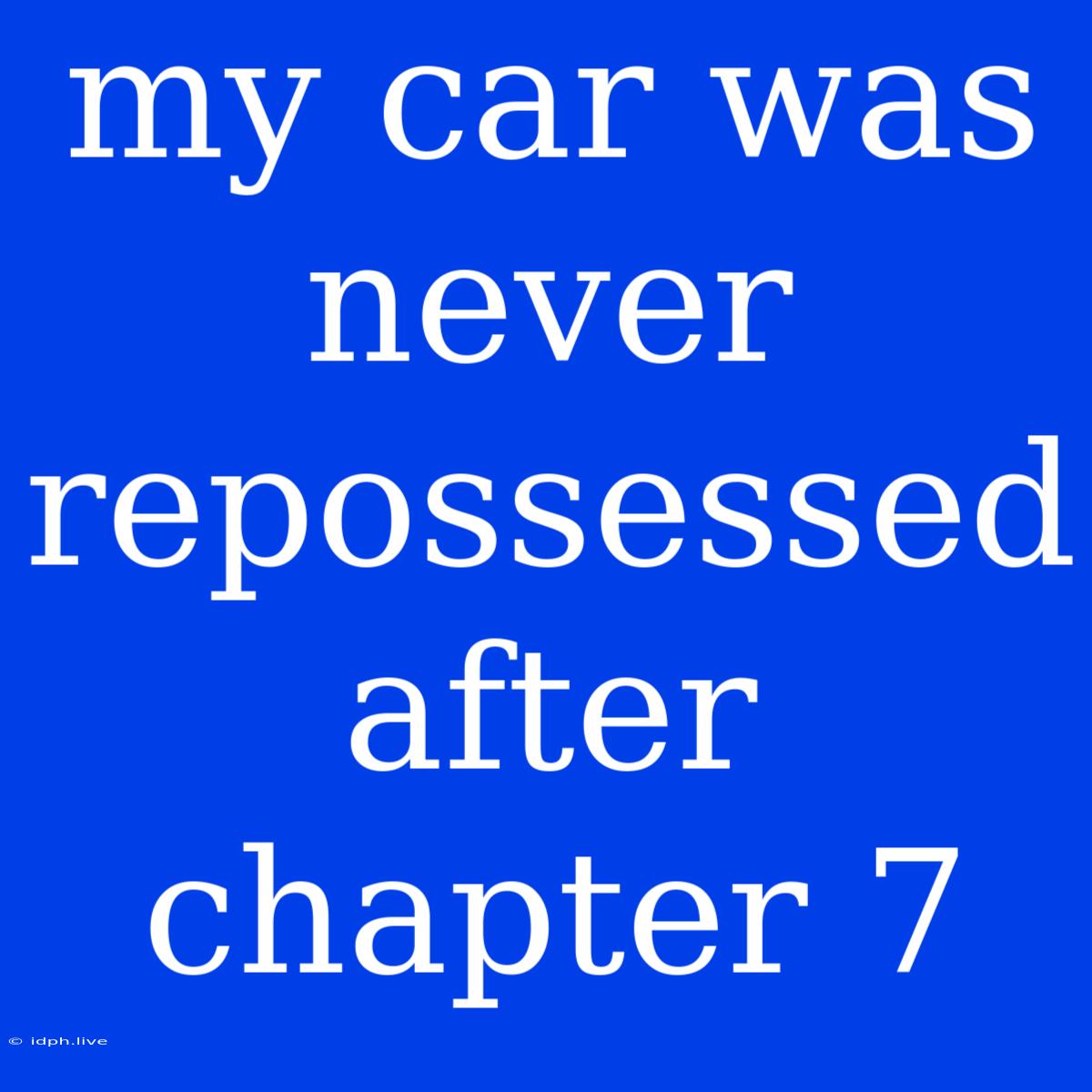My Car Was Never Repossessed After Chapter 7: Understanding the Process
Filing for Chapter 7 bankruptcy can be a daunting experience, and navigating the complexities of asset protection can be especially stressful. One common concern for debtors is the potential for their vehicles to be repossessed. But what happens if your car wasn't repossessed after filing Chapter 7?
Understanding Chapter 7 and Repossession
Chapter 7 bankruptcy allows individuals to discharge most of their unsecured debts. This includes credit card debt, medical bills, and personal loans. However, secured debts, like car loans, are treated differently.
Here's a breakdown:
- Secured Debts: These debts are backed by collateral, such as your car. If you default on a secured loan, the lender can seize the collateral to recover their losses.
- Chapter 7 and Secured Debts: Chapter 7 doesn't automatically eliminate secured debts. Instead, it provides options for debtors:
- Surrender the Collateral: You can surrender the car to the lender, and the debt will be discharged.
- Redeem the Collateral: You can pay the full value of the car to the lender and keep it.
- Reaffirm the Debt: You can agree to continue making payments on the loan.
Reasons Why Your Car Wasn't Repossessed
Several factors could explain why your car wasn't repossessed after Chapter 7:
1. You Made Consistent Payments: If you continued to make regular payments on your car loan after filing, the lender may have chosen not to pursue repossession.
2. You Reaffirmed the Debt: You may have chosen to reaffirm the debt by signing a new agreement with the lender. This would obligate you to continue making payments as originally agreed.
3. The Car's Value Was Less Than the Debt: If the car's value was lower than the amount you owed, it might not have been financially beneficial for the lender to repossess it.
4. The Lender Was Willing to Work With You: Some lenders may be willing to negotiate with debtors after Chapter 7, potentially offering a modified payment plan or extending the loan term.
5. You Filed for Bankruptcy in a State with Stricter Repossession Laws: Certain states have laws that make it more difficult for lenders to repossess vehicles, potentially influencing the lender's decision.
Important Considerations:
Even if your car wasn't repossessed, it's crucial to understand:
- You Still Owe the Debt: Your Chapter 7 filing doesn't erase the car loan debt. You're still responsible for making payments as agreed upon.
- Future Credit Impact: A Chapter 7 filing can negatively impact your credit score, potentially making it difficult to secure new loans in the future.
- Legal Consequences: Failing to make payments on a reaffirmed loan can lead to repossession and potentially further legal action.
Next Steps:
If you're unsure about your car loan status after Chapter 7, consult with a bankruptcy attorney. They can provide guidance on your specific situation and help you navigate the complex legal and financial implications of your case.
Remember: Chapter 7 bankruptcy can be a powerful tool for financial relief, but it's important to seek professional advice to make informed decisions and understand the full scope of your rights and responsibilities.

